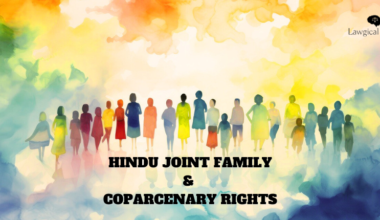India is a country where there are plenty of written laws. Everyone has to abide by those laws. The laws also specify the persons whom the said laws are applicable to. Hindu laws are one of those which lay about the personal affairs of Hindus. Hindu law legislations like The Hindu Marriage Act, Hindu Succession Act, Hindu Adoption and Maintenance Act, Hindu Minority and Guardianship Act apply to any person who is a Hindu. In this blog, let’s have a look at the specific provisions which talk about the applicability these Acts to explain who is a Hindu as per Hindu Laws.
Who is a Hindu according to Hindu Law?
In this topic we will discus three Acts, that is theHindu Marriage Act, Hindu Succession act and Hindu Minority and Guardianship Act. This will help understand who is Hindu under Hindu law specific provisions ?
Hindu under Hindu Marriage Act 1955
Section 2 of the Hindu marriage Act, 1955 lays about the application of the Act. A person can be considered to be a Hindu in the following three ways:
- As per section 2(1)(a) of HMA any person who is a Hindu by religion in any of its forms or developments, including a Virashaiva, a Lingayat or a follower of the Brahmo, Prarthana or Arya Samaj, is a Hindu as per HMA.
- Section 2(1)(b) of HMA states that any person who is Buddhist, Jain, Sikh is also called Hindu.
- As per Section 2(1)(c), a person will be called as Hindu if:
-The person is domiciled in the territories to which this Act extends.
-He/She must not to be a Muslim, Christan, Parsi, Jew.
Hindu under Hindu Succession Act
Under the Hindu Succession Act, a “Hindu” is defined under Section 2 of the Act. Who is a Hindu as per Hindu law for the purpose of succession is someone who follows the Hindu religion in any form or development. This includes followers of Brahmo, Prarthana, or Arya Samaj, as well as Virashaivas and Lingayats. Additionally, Buddhists, Jains, and Sikhs are also considered within the scope of the Act. It may be noted that the Hindu Succession Act applies to anyone who is not a Muslim, Christian, Parsi, or Jew, unless they are shown to not be governed by Hindu law or custom.
Hindu as per Hindu Minority and Guardianship Act, 1956
There is a separate law to regulate the law pertaining to minority and guardianship among Hindus. Under Section 3 of the Hindu Minority and Guardianship Act, 1956, a person is considered Hindu if they:
- Are Hindus by religion: This includes individuals who follow Hinduism in any of its forms or developments, including Virashaiva, Lingayat, and followers of Brahmo, Prarthana, or Arya Samaj.
- Are Buddhist, Jaina, or Sikh by religion: The Act also extends to individuals who practice these religions.
- Are not Muslim, Christian, Pars, or Jew: Unless it can be proved that they were not governed by Hindu law before the Act was passed.
- Legitimate or illegitimate children of Hindu parents: Children born to parents who are Hindus, Buddhists, Jains, or Sikhs are also considered Hindu.
- Converted or reconverted to the Hindu, Buddhist, Jaina, or Sikh religion: Any person who converts or reconverts to one of these religions is also considered Hindu under the Act.
It may be understood that the minor as well as the guardian, both should be Hindus for the Hindu Minority and Guardianship Act to be applicable.
Who is a Hindu as per Hindu Adoptions and Maintenance Act?
HAMA 1956 is the law which regulates adoptions and maintenance among Hindus. Section 2 of the Act lays about the applicability of the same. The applicability is the same as the aforementioned statutes. If a person is a Hindu by religion, or a Buddhist, Jaina or Sikh, is a Hindu as per HAMA Act. Anyone who is not a Muslim, Christian, parsi or Jew is also governed by the Hindu Adoptions and Maintenance Act, unless the applicability is restricted by any custom or usage or law. The law requires that for adoption of a child, the said child should be a Hindu, and the ones who wish to adopt also need to be Hindus by religion.
Which child will be called as Hindu child?
In Explanation (a) to Section 2(1) of HMA, a child can be considered to be Hindu as shown in three points given below:
- The both parents of child are Hindu, Buddhist, Jain or Sikh, all this children shall be called as Hindus by religion.
- If in marriage, one of parents is Hindu and the said parent brought up the child as per Hindu customs, such a child shall also be called as a Hindu child.
- If any person who converts to Hinduism, Buddhism, Jainism or Sikhism shall be considered to be a Hindu.
This which child will be called as a Hindu child, shown same in the aforementioned Acts.
Conclusion
The term “Hindu” under Hindu Law is broadly interpreted and inclusive in nature. since the initial question was “Who is a Hindu under Hindu law?”, the answer is the same in all four laws for marriage, adoption, guardianship, succession, etc. The following persons are considered Hindus:
- Those who are Hindus by religion, including followers of Virashaiva, Lingayat, Brahmo Samaj, Arya Samaj, and Prarthana Samaj.
- Individuals who are Buddhists, Jains, or Sikhs by religion are also legally treated as Hindus.
- Those who are not Muslims, Christians, Parsis, or Jews, unless proven that they are not governed by Hindu law or custom.
- Children of Hindu parents (both or one), including illegitimate children, are considered Hindu if raised in accordance with Hindu customs.
- Persons who have converted or reconverted to Hinduism, Buddhism, Jainism, or Sikhism are also classified as Hindus under the law.
In essence, Hindu Law does not solely rely on statutory labels, but also considers customary practices, domicile, upbringing, and conversion. The law is inclusive, aiming to ensure that those who culturally, religiously, or legally associate with Hinduism or similar traditions receive the rights and protections granted under these laws.
The question “Who is a Hindu under Hindu law” has been answered and explained by our intern, Mr. Apurv Shenmare. He has been assisting the team in bringing informational legal blogs.








